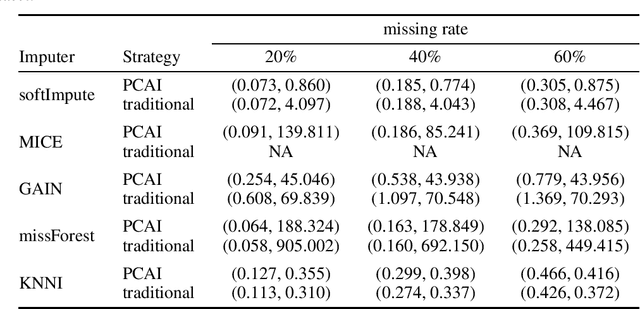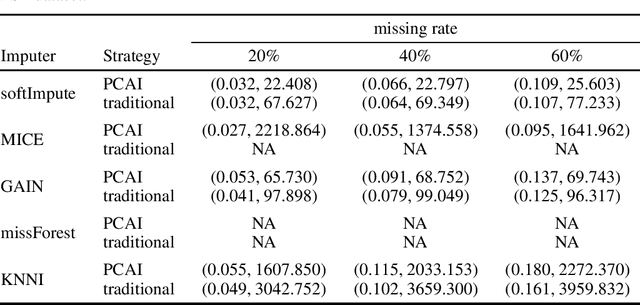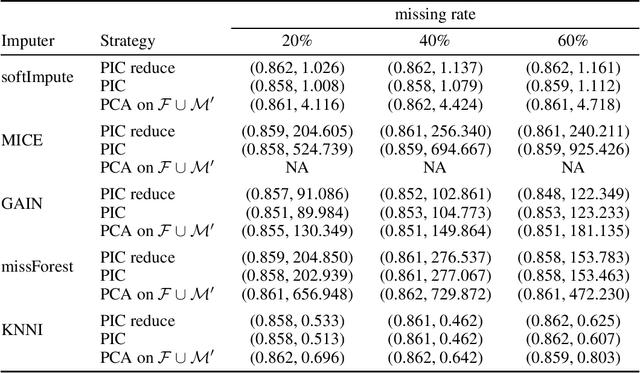Principle Components Analysis based frameworks for efficient missing data imputation algorithms
Paper and Code
May 30, 2022



Missing data is a commonly occurring problem in practice, and imputation, i.e., filling the missing entries of the data, is a popular way to deal with this problem. This motivates multiple works on imputation to deal with missing data of various types and dimensions. However, for high-dimensional datasets, these imputation methods can be computationally expensive. Therefore, in this work, we propose Principle Component Analysis Imputation (PCAI), a simple framework based on Principle Component Analysis (PCA) to speed up the imputation process of many available imputation techniques. Next, based on PCAI, we propose PCA Imputation - Classification (PIC), an imputation-dimension reduction-classification framework to deal with missing data classification problems where it is desirable to reduce the dimensions before training a classification model. Our experiments show that the proposed frameworks can be utilized with various imputation algorithms and improve the imputation speed significantly. Interestingly, the frameworks aid imputation methods that rely on many parameters by reducing the dimension of the data and hence, reducing the number of parameters needed to be estimated. Moreover, they not only can achieve compatible mean square error/higher classification accuracy compared to the traditional imputation style on the original missing dataset but many times deliver even better results. In addition, the frameworks also help to tackle the memory issue that many imputation approaches have by reducing the number of features.
 Add to Chrome
Add to Chrome Add to Firefox
Add to Firefox Add to Edge
Add to Edge